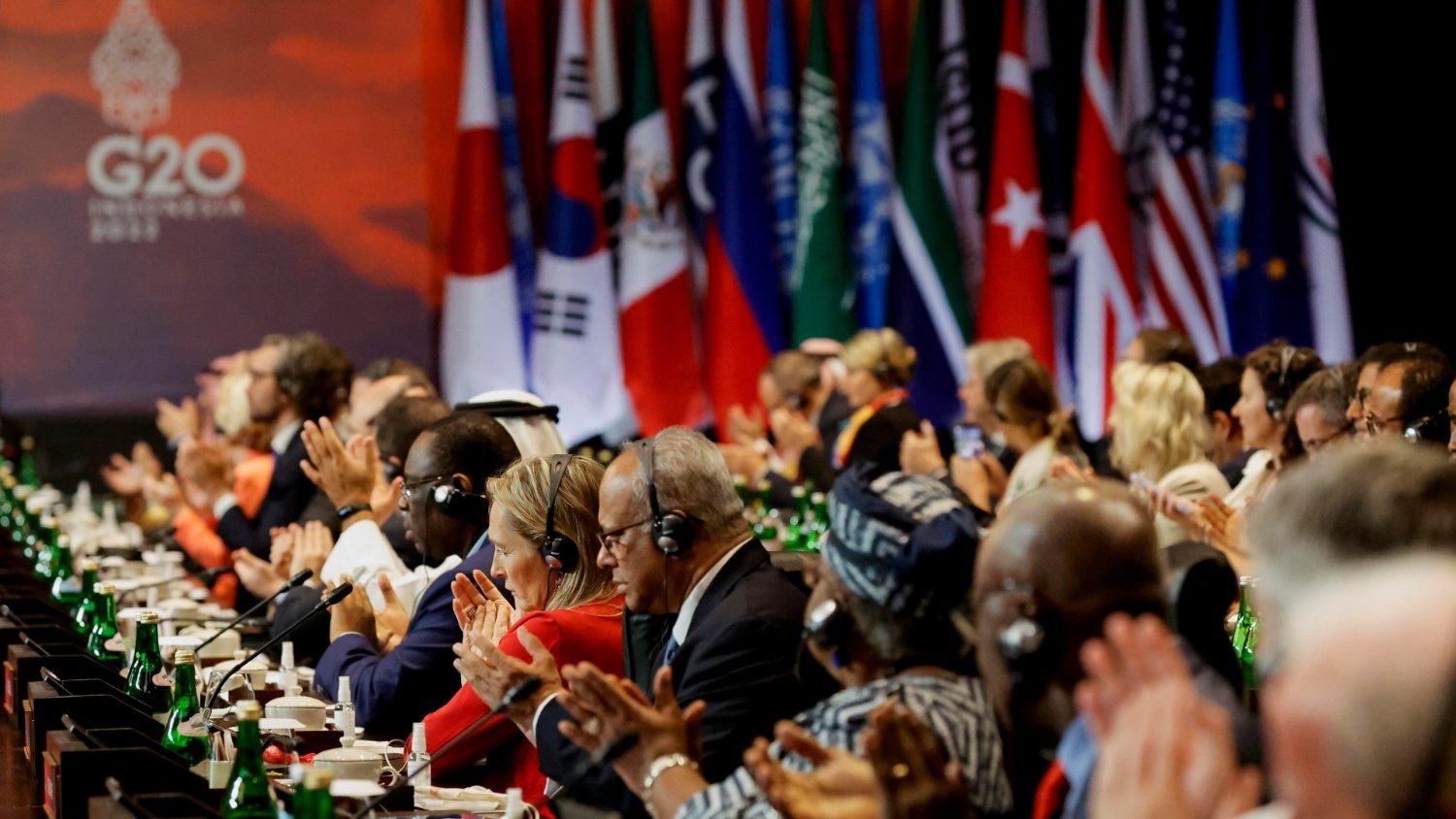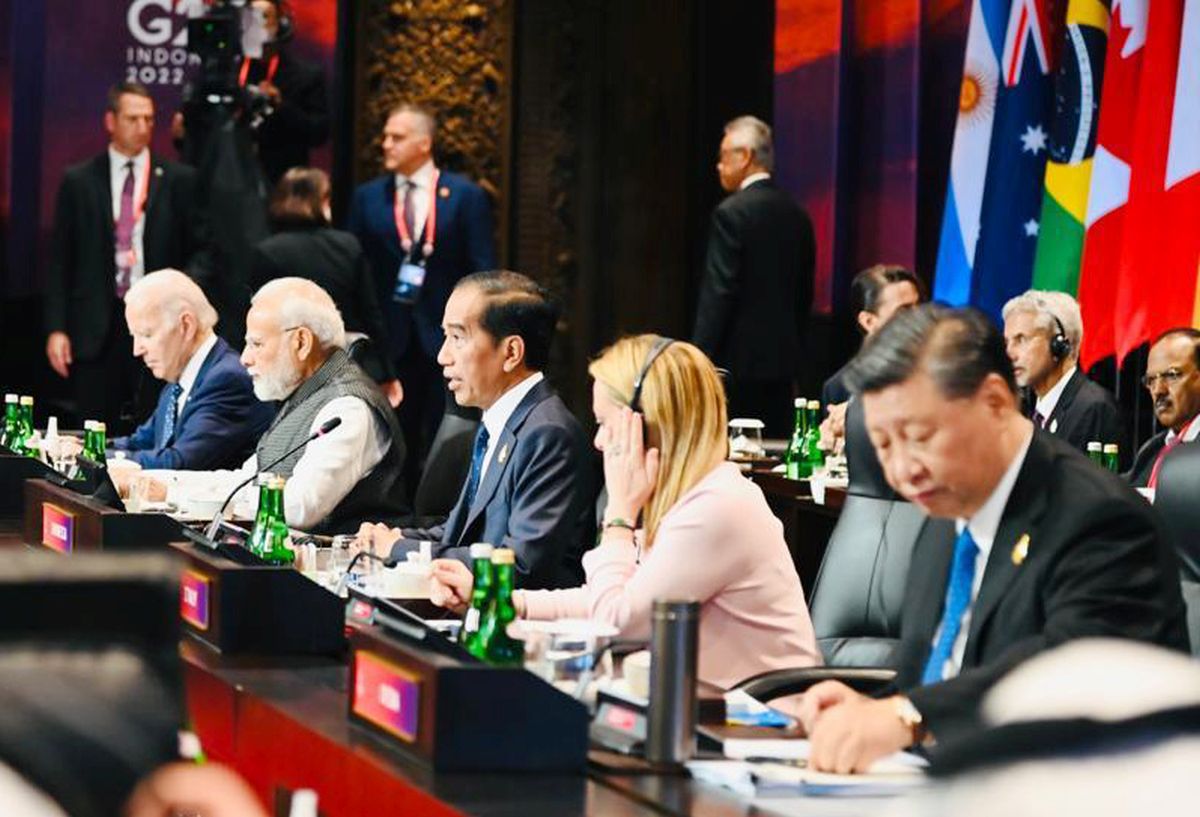Putin No Longer At The Table Of World Leaders As They Met To Address Global Issues
Putin no longer at the table of world leaders as they met to address global issues. In the past week, three important meetings of world leaders took place in Asia. These meetings made it clear that Vladimir Putin is no longer a major player on the world stage.
Author:Hajra ShannonReviewer:Paula M. GrahamNov 20, 2022422 Shares46.8K Views

Putin no longer at the table of world leaders as they met to address global issues. In the past week, three important meetings of world leaders took place in Asia. These meetings made it clear that Vladimir Putin is no longer a major player on the world stage.
Putin didn't go to any of the diplomatic meetings, even though his attack on Ukraine over the past nine months has destroyed the European country and thrown the world economy into chaos. Instead, he got a lot of criticism as international opposition to his war seemed to get stronger.
The Asia-Pacific Economic Cooperation (APEC) leaders met in Bangkok on Saturday. The meeting ended with a statement that mentions the different points of view of the different countries, including a UN resolution that condemned "in the strongest terms" Russia's aggression against Ukraine.
It says the exact same thing as a statement made by the Group of 20 (G20) leaders this week in Bali.
“Most members strongly condemned the war in Ukraine and stressed it is causing immense human suffering and exacerbating existing fragilities in the global economy,” the document said, adding that the group had different "assessments" of the situation.
Aside from the talks at the summits, this week has also shown that Putin is becoming more and more alone. The Russian leader is holed up in Moscow and isn't even willing to face his counterparts at major global meetings.
Alexander Gabuev, a senior fellow at the Carnegie Endowment for International Peace, says that Putin's decision was likely based on his fear of political moves that could be made against him if he left the capital, his obsession with personal security, and his desire to avoid confrontations at the summits, especially since Russia is suffering heavy losses on the battlefield.
At the same time, he might not want to bring unwanted attention to the few countries that have stayed friendly with Russia, like India and China, whose leaders Putin met in September at a regional summit in Uzbekistan.
Gabuev said, "He doesn't want to be this toxic guy."
Hardening Views
But there are signs that even countries that haven't taken a hard line against Russia are losing patience, if not with Russia itself, then with the effects of its aggression. Energy shortages, problems with food security, and rising global inflation are all now putting pressure on economies all over the world.
Indonesia, which hosted the G20, hasn't said that Russia's invasion is wrong, but on Tuesday, President Joko Widodo told world leaders, "We must end the war."
India has been a major buyer of Russian energy even though the West has been avoiding it in recent months. At the G20, India repeated its call to "find a way to return to the path of ceasefire."
In the final statement from the summit, it says, "Today's era must not be of war." This is similar to what Modi said to Putin in September when they met on the sidelines of a summit in Uzbekistan.
Less clear is whether China has changed its position. The close relationship between President Xi Jinping and President Putin strengthens China's strategic partnership with Russia. Beijing has been unwilling for a long time to condemn the invasion or even call it what it is.
Instead, it has criticized Western sanctions and repeated Kremlin talking points that blame the US and NATO for the conflict. However, this rhetoric seems to have been toned down a bit in recent months on its state-controlled domestic media.
This week, however, Xi met with Western leaders on the side. During these meetings, he repeated China's call for a ceasefire through dialogue and, according to reports from his talks, agreed to oppose the use of nuclear weapons in Ukraine. However, these comments were not included in China's report of the meetings.
But people who study China's foreign policy say that it probably still wants strong ties with Russia.
According to Brian Hart, a fellow at the Center for Strategic and International Studies in Washington and a member of the China Power Project,
“„While these statements are an indirect criticism of Vladimir Putin, I don’t think they are aimed at distancing China from Russia.- Brian Hart, a fellow at the Center for Strategic and International Studies in Washington
Jump to

Hajra Shannon
Author

Paula M. Graham
Reviewer
Latest Articles
Popular Articles
